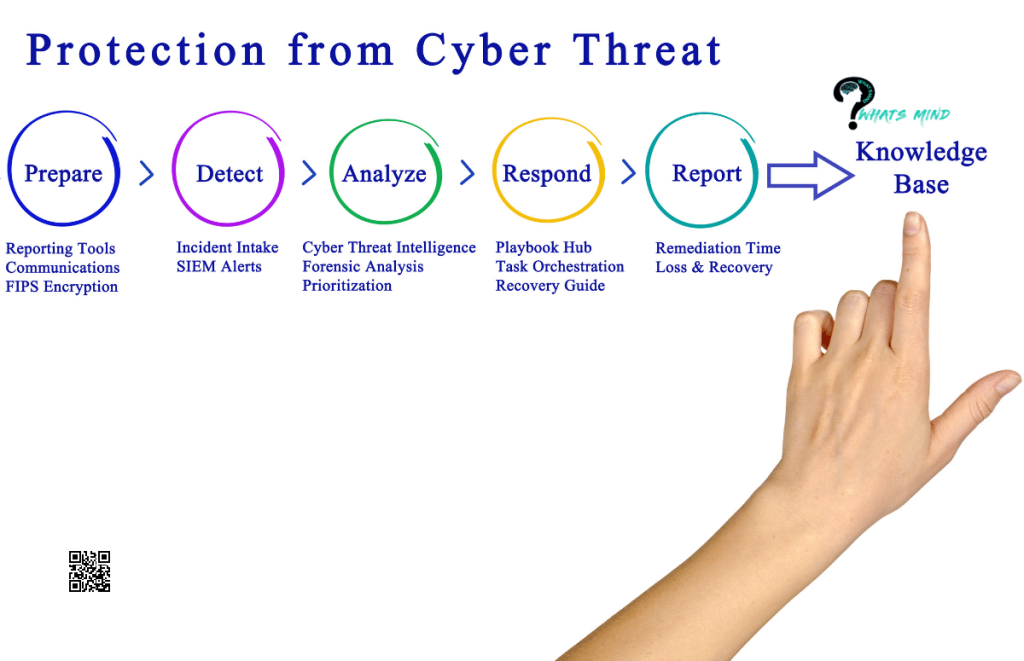Demystifying Threat Intelligence: What Every Business Owner Should Know?

In today’s digital landscape, the rise of cyber threats is a constant challenge for businesses of all sizes. As a business owner, understanding and implementing threat intelligence is crucial in safeguarding your organization against evolving cybersecurity risks.
In this blog post, we’ll demystify the concept of threat intelligence, exploring what it is, how it works, and why it should be an integral part of your business strategy.
Table of Contents
What is Threat Intelligence?
To kick things off, let’s break down the term “threat intelligence.” In simple terms, threat intelligence involves gathering, analyzing, and disseminating information about potential cybersecurity threats. It’s your business’s radar, helping you identify and counteract various types of cyber risks.
There are different flavors of threat intelligence, each serving a specific purpose: tactical intelligence for an immediate response, operational intelligence for ongoing security measures, and strategic intelligence for long-term planning.
Types of Cyber Threats
Before diving deeper, let’s familiarise ourselves with the adversaries we’re up against. Cyber threats come in various forms malware, phishing, ransomware, and more. Threat intelligence plays a crucial role in identifying and mitigating these threats, giving your business a proactive edge in the ever-evolving cybersecurity landscape.
The Threat Intelligence Lifecycle
Now, let’s talk about how threat intelligence operates. Picture it as a lifecycle collection, analysis, dissemination, and feedback. It’s not a one-time deal; it’s a continuous, proactive process that keeps your business ahead of potential threats.
This cyclical approach ensures that you’re not merely reacting to incidents but actively preventing them. You can use expert services for this approach. To learn more about threat intelligence, head directly to cyjax.com.
Benefits of Implementing Threat Intelligence
So, why bother with threat intelligence? Well, for starters, it enhances your situational awareness. You’re not just waiting for an attack; you’re aware of the potential threats lurking in the digital shadows. This heightened awareness translates to improved incident response and mitigation strategies, saving your business both time and money.
The Human Element in Threat Intelligence
Beyond technology, the human factor is critical. Employee training and awareness play a pivotal role in your overall cybersecurity posture. Building a culture where every team member understands their role in maintaining cybersecurity creates an added layer of defense.
Reasons to Pay Attention to Case Studies When Finding Threat Intelligence Services
When you’re trying to choose threat intelligence services, it’s crucial to get to know the company providing this. Indeed, you want to read about their experience, members of their team, and their approach to your business.

But, something else you should always take a look at before requesting a demo is case studies. Hopefully, these will be available on the cybersecurity company’s website. Here are some reasons why you want to pay attention to these.
Here are Some Solutions
You’ve found a cybersecurity company with years of experience. This is a great start. But, it’s one thing to write about how you have all of this experience. You want to see it in action. Well, case studies act as evidence. They can demonstrate the experience and expertise of a team.
With a case study, the client’s problems are outlined. Perhaps they want help identifying and pre-empting threats because they were concerned about vulnerability. In a case study, you read about this and then the goals of that company and what they want to achieve with threat intelligence services. Finally, you can see the strategy taken and how these services have been able to help the business.
More Than Client Reviews
Of course, you always want to read client reviews and hear whether others would recommend the cybersecurity company and its services. But, case studies offer more insight than a review. Again, it’s about seeing the solutions and what was achieved.
It demonstrates more than just good customer service. It’s about whether these services have worked and are finding real threats.
You Can View Industries
Perhaps you feel more comfortable using threat intelligence services that have dealt with your industry before. This is quite common since businesses believe they’re unique and certain threats only exist in some industries. With case studies, you can see if that cybersecurity company has dealt with similar clients before.
You can take a look at what industries they’re in and if this relates to you. It’s all about choosing a service you feel you can depend on and that possesses the skills and experience you want.
Conclusion
In wrapping up, threat intelligence is not just for the tech-savvy. It’s for every business owner navigating the digital landscape. By understanding, implementing, and continuously evolving your threat intelligence strategy, you’re not just protecting your business; you’re future-proofing it against the ever-changing world of cybersecurity.
For more information, visit Whatsmind.com




